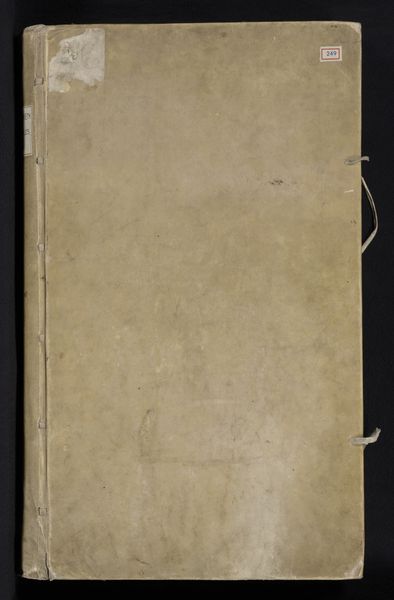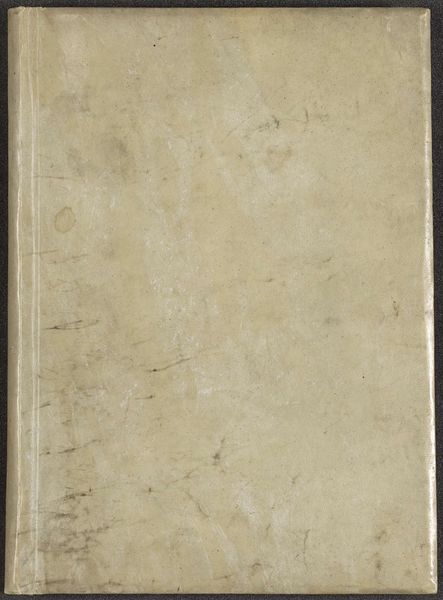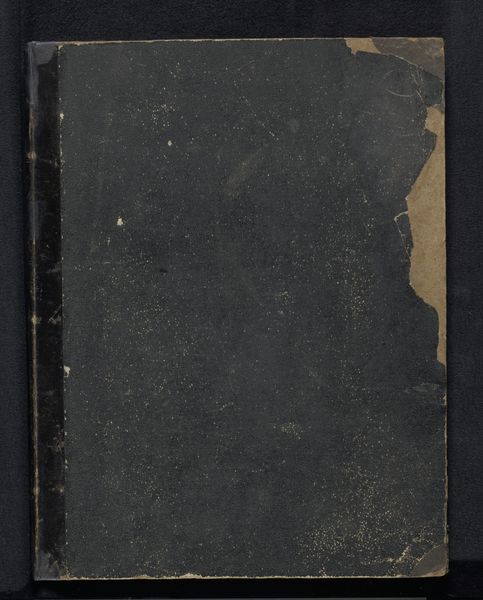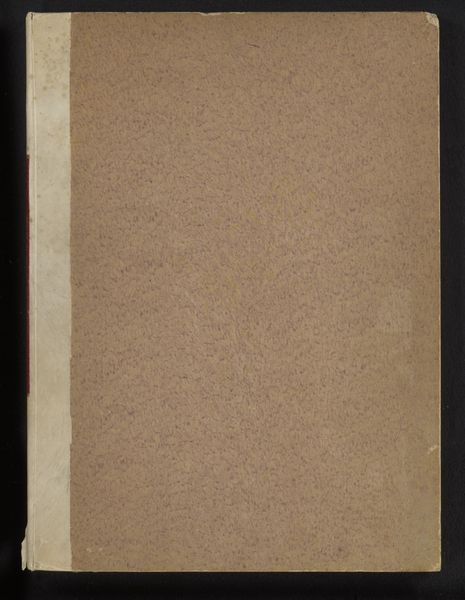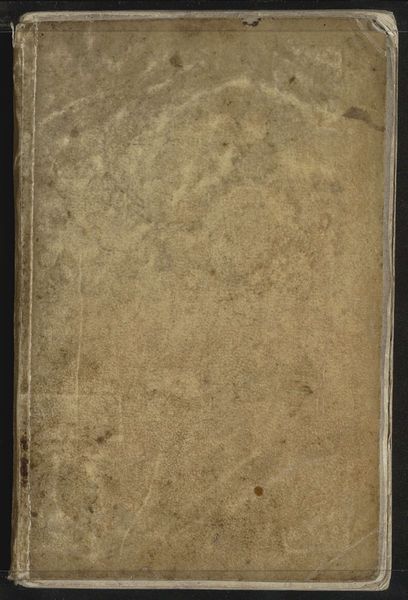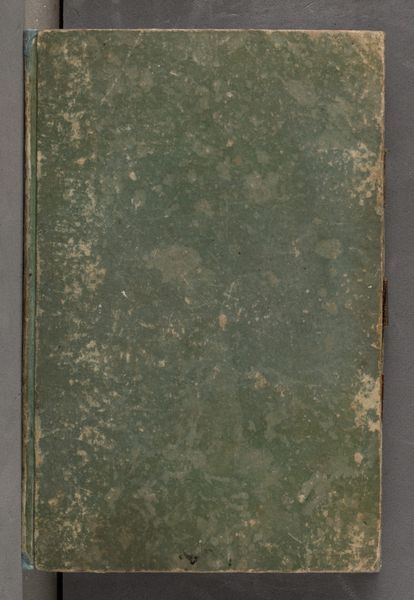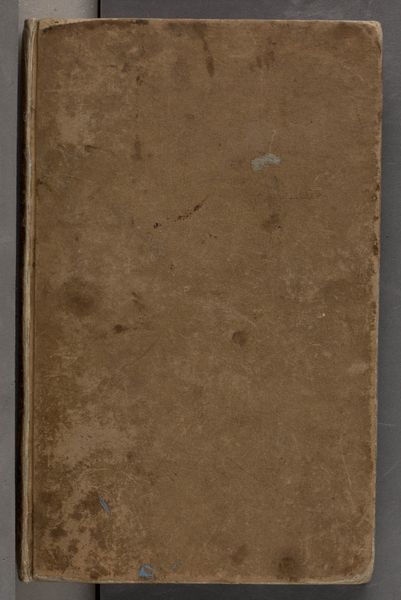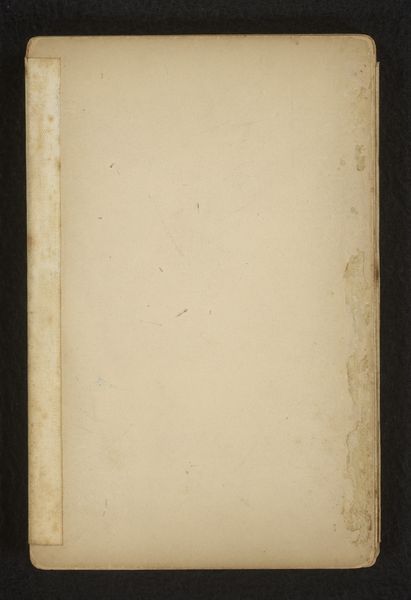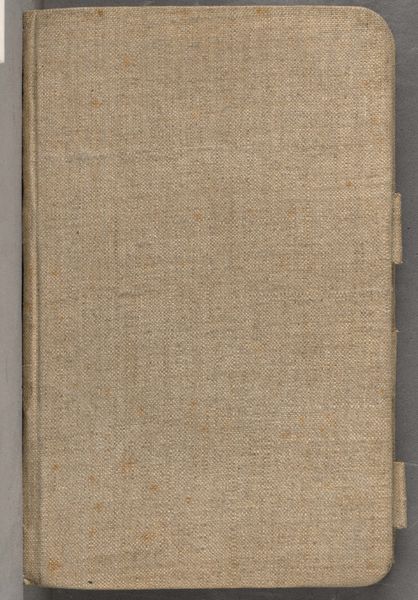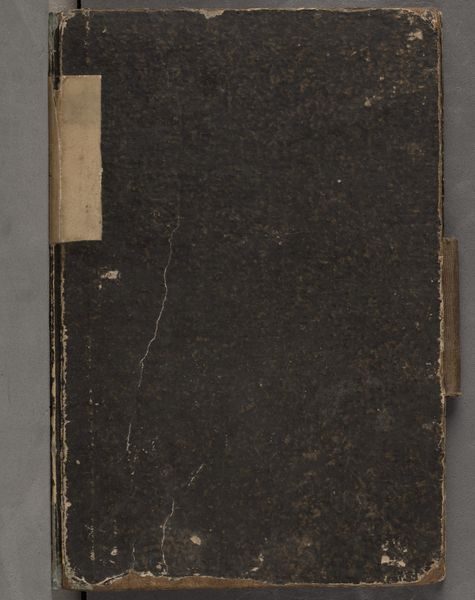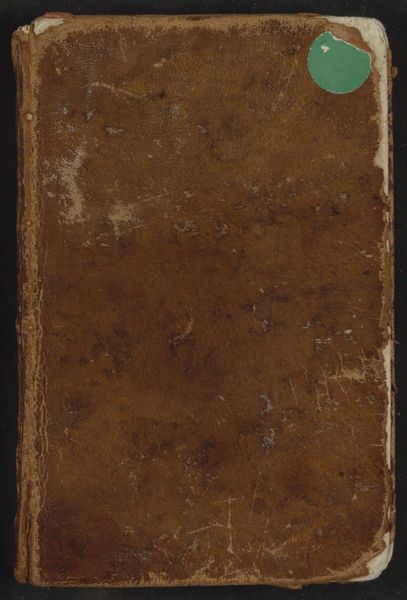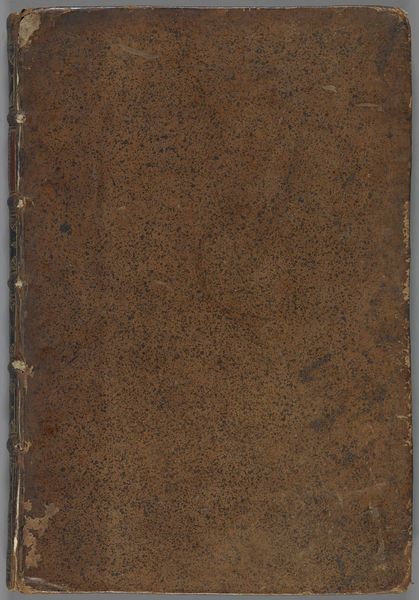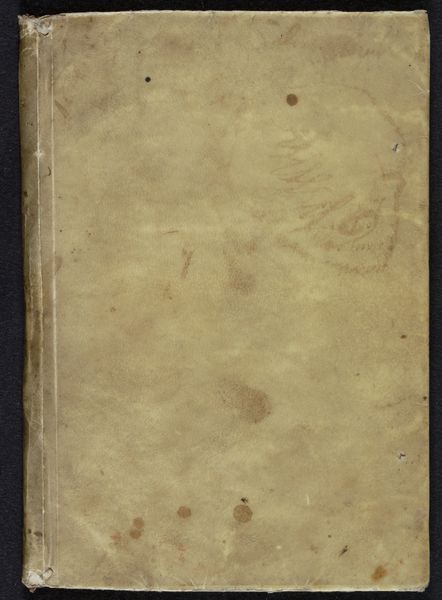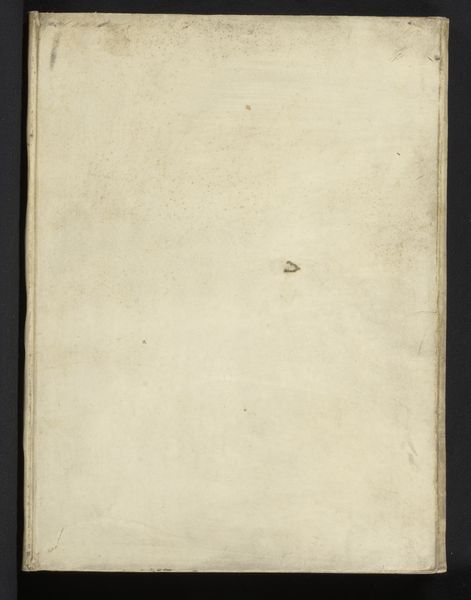
drawing, collage, paper
#
drawing
#
toned paper
#
collage
#
baroque
#
paper texture
#
paper
#
11_renaissance
#
chalky texture
#
coloured pencil
Dimensions: height 335 mm, width 241 mm, thickness 12 mm, height 335 mm, width 485 mm
Copyright: Rijks Museum: Open Domain
Editor: So, this is "Album met voorstellingen van Bolognese straatverkopers," a drawing and collage from 1660 by Giuseppe Maria Mitelli. It's… surprisingly blank! All I see is the cover. How should we interpret this? Curator: Well, I think its apparent blankness actually speaks volumes. It encourages us to consider who gets represented and how. Street vendors, essential to the urban fabric of 17th-century Bologna, are the subjects, yet the album cover itself becomes a site of analysis. Think about visibility – whose stories are literally inscribed and preserved versus those relegated to the margins. Editor: That’s an interesting perspective. It flips the usual way of thinking about portraiture, right? Like, the absence is the point? Curator: Precisely! We should question the structures that elevate certain narratives and erase others. The materiality of the paper—its age, the toned surface—becomes evidence of history's selective recording. In what ways might this represent the social hierarchies that structured Bolognese society at the time? Consider also: who had access to art materials like paper, pencils, colored chalk? Who were the intended viewers? Editor: So it's about class, too? The vendors are working-class, and the art object would’ve been viewed by a wealthier class? Curator: Exactly. This piece becomes a social commentary. The seeming simplicity challenges us to engage critically with power dynamics embedded within representation. We see not only art history, but cultural studies, race, and even gender as contributing layers. Editor: Wow, I would've totally missed that looking at it myself! Curator: Art's power is not always in the immediately visible, but in prompting these critical dialogues. Hopefully, now you see past the surface.
Comments
No comments
Be the first to comment and join the conversation on the ultimate creative platform.
